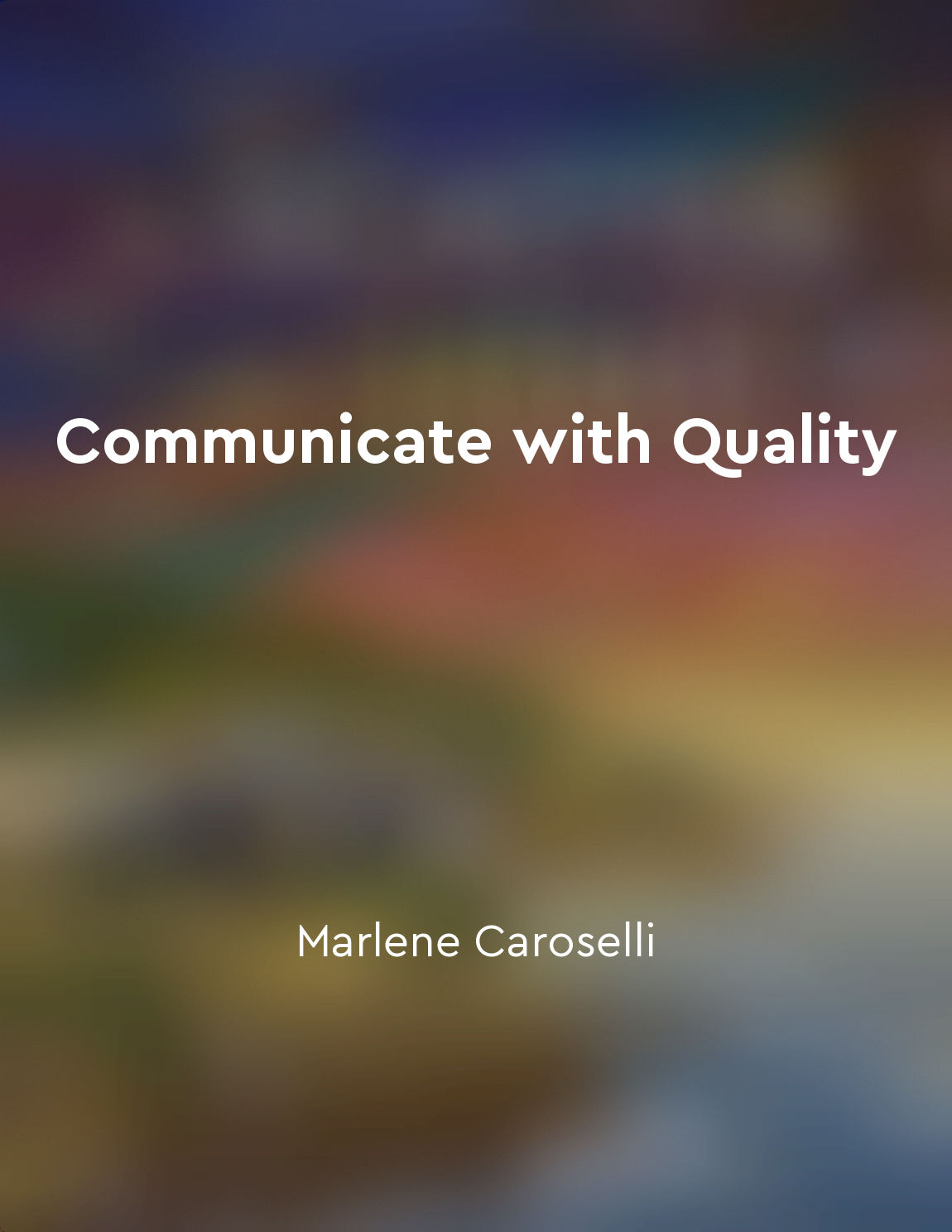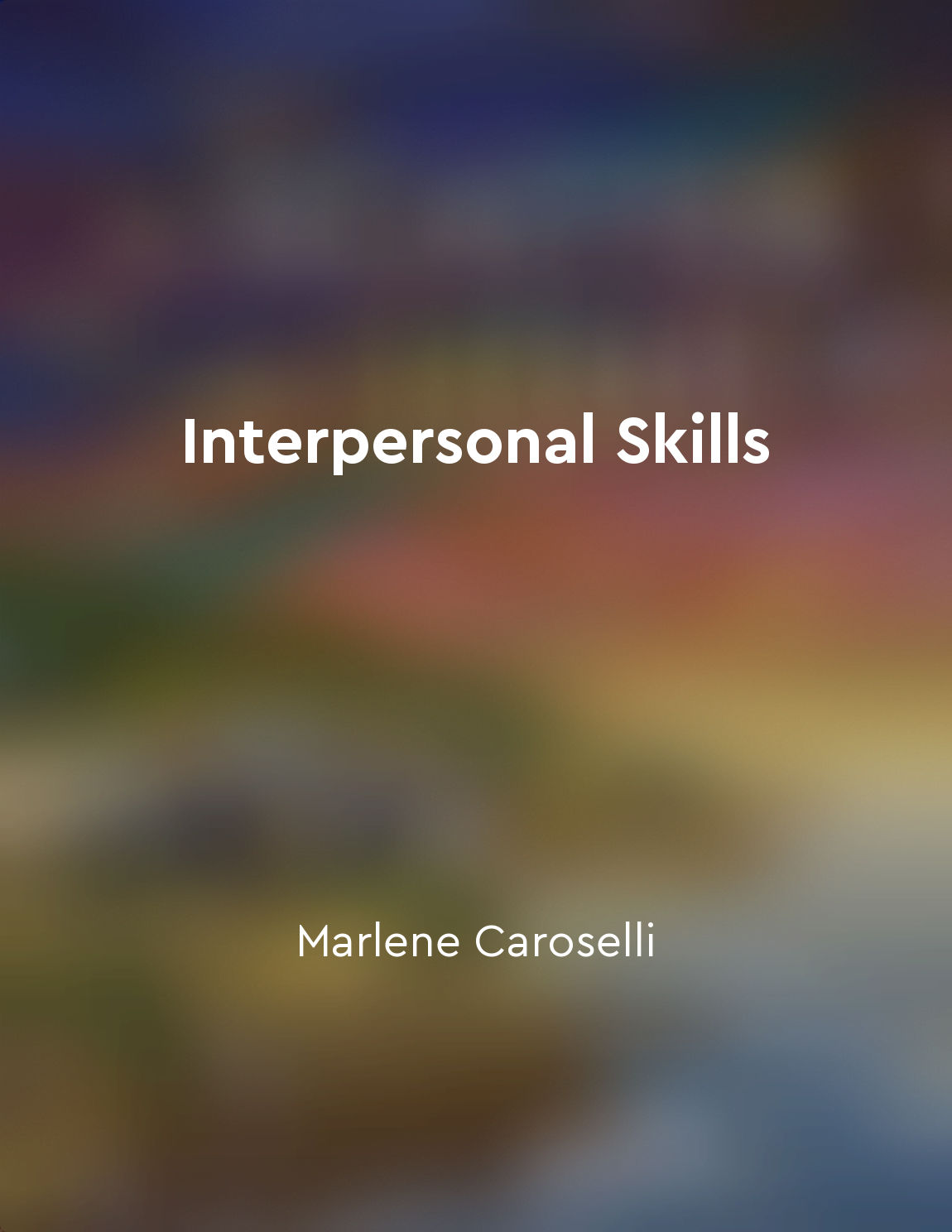Help others find solutions through questioning from "summary" of Questions are the Answers by Allan Pease
When someone comes to you with a problem, your first instinct might be to offer solutions right away. But what if I told you that asking questions could be even more effective in helping them find the answers they seek? By asking the right questions, you can guide them towards discovering solutions on their own. Questions have the power to stimulate critical thinking and self-reflection. When you ask someone a question, you are prompting them to consider different perspectives and analyze the situation from various angles. This process can lead to a deeper understanding of the problem and ultimately, a more effective solution. Moreover, questions can help clarify the issue at hand. Sometimes, people may not fully grasp the root cause of their problem or may be unsure about what they truly want. By asking probing questions, you can help them articulate their thoughts and feelings, bringing clarity to the situation. Furthermore, questions can empower individuals to take ownership of their problems. When you simply provide solutions, you are essentially handing them a quick fix. However, by asking questions, you are encouraging them to take an active role in problem-solving. This sense of agency can boost their confidence and motivate them to tackle future challenges independently. In addition, questions can foster open communication and trust. When you demonstrate genuine curiosity and interest in someone else's problem through questioning, you are showing empathy and creating a supportive environment. This can strengthen your relationship with the person and make them more receptive to your guidance.- By refraining from giving answers and instead using questions as a tool for exploration, you are not only helping others find solutions but also empowering them to become more self-reliant problem-solvers. So, the next time someone approaches you with a problem, remember the power of questioning and see how it can lead them towards their own answers.
Similar Posts

Building strong communication skills is a lifelong journey
The ability to communicate effectively is a skill that requires constant effort and practice. It is not something that can be l...
Build a community of thinkers in the classroom
Creating a community of thinkers in the classroom is essential for fostering a culture of active, engaged learning. When studen...
Embrace rejection and use it as a tool for growth
Rejection is a fact of life. We all face rejection at some point in our lives, whether it's in our personal relationships, our ...
Avoid asking loaded or leading questions
When engaging in dialogue, it is crucial to be mindful of the way questions are framed. Loaded or leading questions can steer t...
Practical experiments are key to reinforcing theoretical knowledge
Practical experiments play a crucial role in solidifying the understanding of theoretical concepts. The hands-on experience gai...
Active listening involves responding to the speaker
Active listening goes beyond just hearing the words that someone is saying. It involves actively engaging with the speaker by r...

Our brains make predictions based on past experiences
Our brains are constantly striving to make sense of the world around us. One way they do this is by making predictions based on...

Trust is the foundation of any healthy connection
Trust is the bedrock upon which all healthy relationships are built. Without trust, a connection is like a house of cards waiti...
Show respect for others
Respect for others is a key principle in building strong relationships and influencing people. When we show respect for others,...
The quest for truth requires a willingness to question
The pursuit of truth demands a fundamental openness to questioning. To embark on the journey towards truth is to embrace a stan...

